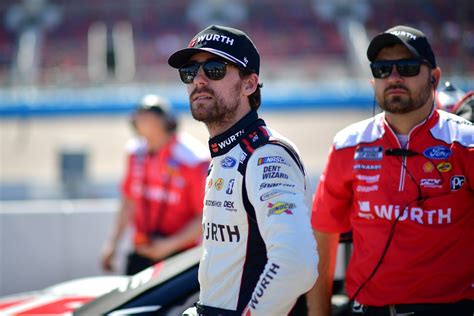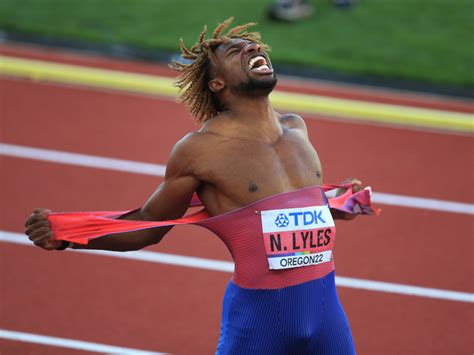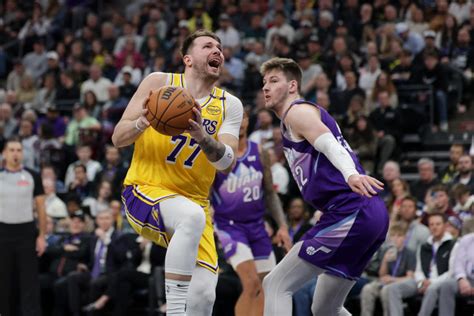
Shedeur Sanders, quarterback for the Colorado Buffaloes, has once again captured attention off the field, this time with his acquisition of a custom Mercedes-Maybach S680 Virgil Abloh edition, drawing significant buzz even before the start of the Cleveland Browns’ Organized Team Activities (OTAs). The purchase, showcasing Sanders’ penchant for luxury vehicles, has sparked conversations about Name, Image, and Likeness (NIL) deals and the financial opportunities available to top college athletes.
Sanders’ latest acquisition, a vehicle reportedly priced starting around $550,000 and potentially exceeding that figure with custom modifications, highlights the lucrative landscape of NIL deals for college athletes. Photos and videos of the Maybach quickly circulated on social media, igniting discussions about the financial benefits Sanders reaps from endorsements and personal branding. While the Browns prepare for OTAs, the buzz surrounding Sanders’ extravagant purchase provides a stark contrast, underscoring the diverging worlds of college and professional football.
The Mercedes-Maybach S680 Virgil Abloh, a limited-edition vehicle designed in collaboration with the late fashion icon Virgil Abloh, is characterized by its distinctive two-tone color scheme, luxurious interior appointments, and exclusive design elements. Only 150 of these vehicles were produced, making Sanders’ acquisition even more noteworthy. The car’s rarity and association with a renowned designer amplify its status as a symbol of wealth and prestige.
This isn’t Sanders’ first foray into high-end automobiles. He previously owned a Lamborghini Urus and a Rolls-Royce Cullinan, both indicative of his taste for luxury and performance. These acquisitions are directly linked to his NIL earnings, which have positioned him as one of the highest-earning college athletes in the country. According to On3.com, Sanders boasts an NIL valuation of $4.7 million, placing him among the top five in college sports.
The timing of this purchase, coinciding with the lead-up to the Browns’ OTAs, is particularly notable. While professional players gear up for rigorous training and team-building exercises, Sanders’ off-field activities underscore the unique position of college athletes who can leverage their fame and marketability for substantial financial gain. The contrast highlights the evolving dynamics of college sports, where top athletes are increasingly treated as marketable brands.
The Maybach purchase also reignites the debate surrounding NIL deals and their impact on college athletics. While proponents argue that NIL deals allow athletes to profit from their hard work and talent, critics express concerns about potential imbalances and the increasing commercialization of college sports. The substantial sums involved in deals like Sanders’ raise questions about the long-term effects on amateurism and competitive equity.
Sanders’ success in securing lucrative NIL deals is attributed to several factors, including his exceptional football talent, his charismatic personality, and his strong social media presence. He has cultivated a personal brand that resonates with fans and sponsors alike, allowing him to command significant endorsement opportunities. His father, Deion Sanders, has also played a crucial role in guiding his son’s career and maximizing his earning potential.
The acquisition of the Maybach underscores the broader trend of college athletes leveraging their NIL rights to acquire luxury goods and experiences. As NIL regulations continue to evolve, it is likely that more athletes will follow in Sanders’ footsteps, seeking to capitalize on their marketability while still in college. This trend has the potential to reshape the landscape of college sports, creating new opportunities and challenges for athletes, institutions, and regulators alike.
Sanders’ on-field performance at Colorado will undoubtedly be under intense scrutiny this season. After a promising start in 2023, the Buffaloes struggled to maintain their momentum, finishing with a disappointing record. Sanders will need to elevate his game and lead his team to consistent success to justify the hype and financial backing he receives. His performance on the field will ultimately determine his long-term prospects in football and his continued marketability as a brand ambassador.
The narrative surrounding Shedeur Sanders extends beyond his football prowess; it encompasses his business acumen, his brand management, and his ability to navigate the complex world of NIL deals. His story serves as a case study for other college athletes seeking to maximize their earning potential and build a sustainable career beyond sports. The spotlight on his Maybach purchase serves as a reminder of the evolving landscape of college athletics and the increasing financial opportunities available to top athletes.
The car itself is more than just a mode of transportation; it’s a statement. The Mercedes-Maybach S680 Virgil Abloh edition represents a fusion of luxury, exclusivity, and high fashion. Its unique design elements and limited production run make it a coveted item among collectors and enthusiasts. By acquiring this vehicle, Sanders is not only indulging his personal taste but also solidifying his image as a trendsetter and tastemaker. The car has a V12 engine that delivers significant horsepower and torque. The vehicle is also equipped with state-of-the-art technology, including advanced driver-assistance systems and a premium sound system. These features contribute to its appeal as a symbol of automotive excellence and technological innovation.
The impact of Sanders’ NIL deals extends beyond his personal wealth. He has also used his platform to support charitable causes and give back to his community. This philanthropic aspect of his NIL activities adds another dimension to his image, demonstrating that he is not only focused on personal gain but also committed to making a positive impact on the world. The ability to use NIL earnings for charitable purposes is a growing trend among college athletes, reflecting a broader desire to use their influence for social good.
The ongoing debate surrounding NIL deals highlights the need for clear and consistent regulations. As NIL continues to evolve, it is crucial that governing bodies establish guidelines that ensure fairness, transparency, and accountability. The goal is to create a system that allows athletes to profit from their NIL rights while also preserving the integrity of college sports. This requires careful consideration of issues such as booster involvement, recruiting inducements, and the potential for conflicts of interest.
Sanders’ story also raises questions about the future of amateurism in college sports. The traditional definition of amateurism, which prohibits athletes from receiving compensation for their participation, is increasingly challenged by the reality of NIL deals. As athletes like Sanders generate substantial income from endorsements and other commercial activities, the line between amateur and professional becomes increasingly blurred. This has led to calls for a reevaluation of the principles of amateurism and a more realistic approach to compensating college athletes.
In conclusion, Shedeur Sanders’ acquisition of the custom Mercedes-Maybach S680 Virgil Abloh edition is more than just a news item about a luxury car. It is a symbol of the changing landscape of college sports, the growing financial opportunities available to top athletes, and the ongoing debate surrounding NIL deals and the future of amateurism. As Sanders continues his football career at Colorado, his on-field performance and off-field activities will continue to be closely watched, making him a compelling figure in the world of college athletics. The buzz created has proven that Sanders is very conscious about brand building.
Frequently Asked Questions (FAQ)
1. What is the Mercedes-Maybach S680 Virgil Abloh edition?
The Mercedes-Maybach S680 Virgil Abloh edition is a limited-production luxury vehicle designed in collaboration with the late fashion icon Virgil Abloh. Only 150 of these vehicles were made. It features a distinctive two-tone color scheme, luxurious interior appointments, and exclusive design elements. It is powered by a V12 engine and equipped with state-of-the-art technology. The estimated cost is $550,000, though custom modifications can raise the price.
2. How does Shedeur Sanders afford such a luxury car?
Shedeur Sanders can afford the Mercedes-Maybach S680 Virgil Abloh edition through Name, Image, and Likeness (NIL) deals. NIL deals allow college athletes to earn money from endorsements, sponsorships, and other commercial activities based on their personal brand and marketability. Sanders has an estimated NIL valuation of $4.7 million, making him one of the highest-earning college athletes in the country.
3. What are Name, Image, and Likeness (NIL) deals?
Name, Image, and Likeness (NIL) deals are agreements that allow college athletes to profit from their personal brand. This includes endorsements, sponsorships, appearances, and other commercial activities where athletes can leverage their name, image, and likeness for financial gain. The NCAA changed its rules in 2021 to allow college athletes to engage in NIL activities, opening up new revenue streams for student-athletes.
4. What is Shedeur Sanders’ NIL valuation?
According to On3.com, Shedeur Sanders’ NIL valuation is estimated at $4.7 million. This valuation is based on factors such as his social media following, his on-field performance, and his endorsement deals with various brands. The NIL valuation represents the estimated annual value of Sanders’ brand based on current market conditions.
5. What impact do NIL deals have on college sports?
NIL deals have a significant impact on college sports, both positive and negative. Proponents argue that NIL deals allow athletes to profit from their hard work and talent, providing them with financial opportunities that were previously unavailable. Critics express concerns about potential imbalances, the increasing commercialization of college sports, and the potential for recruiting advantages based on NIL opportunities. The ongoing debate highlights the need for clear and consistent regulations to ensure fairness and integrity in college athletics.
6. What other luxury cars has Shedeur Sanders owned?
Prior to acquiring the Mercedes-Maybach S680 Virgil Abloh edition, Shedeur Sanders owned a Lamborghini Urus and a Rolls-Royce Cullinan. These vehicles are indicative of his taste for luxury and performance, and they reflect his ability to afford high-end automobiles through his NIL earnings. These purchases highlight the financial opportunities available to top college athletes in the NIL era.
7. How is Deion Sanders involved in Shedeur’s NIL deals?
Deion Sanders, Shedeur’s father, plays a crucial role in guiding his son’s career and maximizing his earning potential. As a former professional athlete and coach, Deion Sanders brings a wealth of experience and expertise to the table. He helps Shedeur navigate the complex world of endorsements, brand management, and financial planning. His guidance is instrumental in ensuring that Shedeur makes informed decisions and maximizes his NIL opportunities.
8. What are the concerns surrounding NIL deals in college sports?
Concerns surrounding NIL deals in college sports include potential imbalances in recruiting, the increasing commercialization of college athletics, and the potential for conflicts of interest. Some worry that schools with more resources will be able to offer more lucrative NIL deals, creating an unfair advantage in recruiting top talent. Others are concerned that NIL deals will detract from the amateur spirit of college sports, turning athletes into professionalized figures. Additionally, there are concerns about the potential for boosters to use NIL deals to influence recruiting decisions, violating NCAA rules.
9. How are NIL deals regulated?
NIL deals are regulated by a combination of NCAA rules, state laws, and institutional policies. The NCAA has established general guidelines for NIL activities, but specific regulations vary from state to state. Many universities have also implemented their own policies to ensure compliance with NCAA rules and state laws. The regulatory landscape is constantly evolving, and there is ongoing debate about the need for federal legislation to provide a uniform framework for NIL activities.
10. What role does social media play in NIL deals?
Social media plays a significant role in NIL deals, as athletes with large and engaged social media followings are often more attractive to sponsors and brands. A strong social media presence allows athletes to connect with fans, promote products, and build their personal brand. Social media metrics, such as followers, engagement rates, and impressions, are often used to determine an athlete’s marketability and NIL valuation. Athletes like Shedeur Sanders have leveraged their social media presence to secure lucrative endorsement deals and build a strong personal brand.
11. How does the timing of Shedeur’s car purchase relate to the Browns’ OTAs?
The timing of Shedeur Sanders’ purchase of the Mercedes-Maybach S680 Virgil Abloh edition, coinciding with the lead-up to the Cleveland Browns’ Organized Team Activities (OTAs), underscores the diverging worlds of college and professional football. While professional players are focused on preparing for the upcoming season through rigorous training and team-building exercises, Sanders’ off-field activities highlight the unique position of college athletes who can leverage their fame and marketability for substantial financial gain. The contrast emphasizes the evolving dynamics of college sports, where top athletes are increasingly treated as marketable brands.
12. Is it common for college athletes to own luxury vehicles?
It is becoming increasingly common for college athletes, particularly those with significant NIL earnings, to own luxury vehicles. NIL deals have opened up new revenue streams for student-athletes, allowing them to afford items that were previously unattainable. The acquisition of luxury vehicles is often seen as a symbol of success and a reflection of the financial opportunities available to top college athletes in the NIL era. However, it also raises questions about the potential for excess and the responsible use of NIL earnings.
13. What are the long-term implications of NIL deals for college athletics?
The long-term implications of NIL deals for college athletics are still unfolding, but they are expected to be significant. NIL deals have the potential to reshape the landscape of college sports, creating new opportunities and challenges for athletes, institutions, and regulators alike. They could lead to increased competition for top talent, a greater focus on marketing and branding, and a reevaluation of the principles of amateurism. The ultimate impact of NIL deals will depend on how they are regulated and managed in the years to come.
14. What is the significance of the Virgil Abloh collaboration for the Mercedes-Maybach S680 edition?
The Virgil Abloh collaboration for the Mercedes-Maybach S680 edition adds significant prestige and exclusivity to the vehicle. Virgil Abloh was a renowned fashion designer and creative director known for his innovative and avant-garde designs. His collaboration with Mercedes-Maybach elevates the S680 edition to a new level of luxury and style, making it a highly sought-after item among collectors and enthusiasts. The limited production run of 150 vehicles further enhances its exclusivity and desirability.
15. How does Shedeur Sanders’ story serve as a case study for other college athletes?
Shedeur Sanders’ story serves as a case study for other college athletes seeking to maximize their earning potential and build a sustainable career beyond sports. His success in securing lucrative NIL deals, cultivating a personal brand, and navigating the complex world of endorsements provides valuable lessons for aspiring student-athletes. His story demonstrates the importance of talent, charisma, and strategic brand management in the NIL era. By following Sanders’ example, other college athletes can learn how to leverage their NIL rights to achieve financial success and build a long-term career.
16. How might Sanders’ on-field performance affect his NIL valuation?
Sanders’ on-field performance is directly correlated with his NIL valuation. Strong performance, such as high passing yardage, touchdowns, and leadership qualities, enhances his marketability and attracts more endorsements and sponsorship opportunities. Conversely, poor performance could negatively impact his NIL valuation. Consistently playing at a high level is crucial for maintaining and increasing his earning potential. Sanders must demonstrate consistent improvement and leadership to maintain or increase his NIL valuation.
17. Are there ethical considerations regarding college athletes owning extremely expensive items like this car?
Yes, there are ethical considerations. Some argue that while NIL allows athletes to profit, purchasing extremely expensive items might be seen as insensitive, especially if they come from underprivileged backgrounds. Responsible spending and financial planning are crucial. Some may perceive excessive displays of wealth as detached from the realities faced by many college students and the general public. The potential impact on team dynamics and public perception should also be considered.
18. What are the potential tax implications for college athletes earning income through NIL deals?
College athletes earning income through NIL deals face significant tax implications. They are considered independent contractors and are responsible for paying federal, state, and local income taxes on their earnings. They must also pay self-employment taxes, which include Social Security and Medicare taxes. It’s advisable for athletes to maintain thorough records of income and expenses and to consult with a tax professional.
19. How are universities adapting to the NIL landscape?
Universities are adapting to the NIL landscape by providing resources and education to their student-athletes. Many institutions have established NIL programs that offer workshops on financial literacy, brand management, and legal compliance. These programs help athletes understand their rights and responsibilities under NIL rules and provide them with the tools they need to succeed in the NIL market. Universities are also working to create partnerships with local businesses to facilitate NIL opportunities for their athletes.
20. What is the future of NIL in college sports, and what changes are anticipated?
The future of NIL in college sports is expected to involve continued evolution and refinement. Changes that are anticipated include greater clarity and consistency in regulations, potentially through federal legislation. There may be increased emphasis on financial literacy and responsible spending among athletes. Additionally, there is likely to be ongoing debate about the role of boosters and the potential for NIL deals to influence recruiting. The long-term goal is to create a sustainable and equitable NIL system that benefits athletes while preserving the integrity of college sports.









